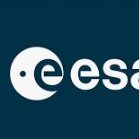Members Can Post Anonymously On This Site
Metal fuel for carbon-free energy on Earth… and the Moon
-
Similar Topics
-
By NASA
1 min read
Preparations for Next Moonwalk Simulations Underway (and Underwater)
ECF 2024 Quadchart McGuirk.pdf
Christopher McGuirk
Colorado School of Mines
This project will investigate and develop improved storage methods for the fuels needed to generate electrical power in places where sunlight is not available. The effort will focus on particularly tailored materials called Metal Oxide Frameworks, or MOFs, that can be used to store methane and oxygen. The methane and oxygen can be reacted in a solid oxide fuel cell to generate electricity, and storing them in a MOF could potentially result in significant mass and cost savings over traditional storage tanks which also require active pressure and thermal regulation. The team will use a number of computational and experimental tools to develop a MOF structure suitable for this application.
Back to ECF 2024 Full List
Share
Details
Last Updated Apr 18, 2025 EditorLoura Hall Related Terms
Early Career Faculty (ECF) Space Technology Research Grants View the full article
-
By NASA
1 min read
Preparations for Next Moonwalk Simulations Underway (and Underwater)
ECF 2024 Quadchart Oguri.pdf
Kenshiro Oguri
Purdue University
This project will investigate one of the key fundamental challenges associated with directed-energy light-sailing technology, similar to solar sails but powered by a laser beam pointed at the sail instead of by the sun. The effort will first mathematically model, then design, build, and test a prototype diffractive light sail. The three-dimensional, origami-inspired light sail could potentially unlock higher thrust, passive beam riding stability, and higher maneuverability via its ability to transform its shape.
Back to ECF 2024 Full List
Share
Details
Last Updated Apr 18, 2025 EditorLoura Hall Related Terms
Early Career Faculty (ECF) Space Technology Research Grants View the full article
-
By NASA
1 min read
Preparations for Next Moonwalk Simulations Underway (and Underwater)
ECF 2024 Quadchart Ilic.pdf
Ognjen Ilic
University of Minnesota
This effort will aim to demonstrate the feasibility of directed-energy propulsion through a combination of computational simulations and prototype testing. The project will model the interactions between lightsail material and a laser beam that can be pointed at the sail to propel the spacecraft. The results of the modeling will be used to fabricate an optimized sail for testing with a 30W laser. A successful demonstration would pave the way for ultrafast spaceflight within and beyond the solar system.
Back to ECF 2024 Full List
Share
Details
Last Updated Apr 18, 2025 EditorLoura Hall Related Terms
Early Career Faculty (ECF) Space Technology Research Grants View the full article
-
By European Space Agency
Image: This very high-resolution image captures the Egyptian city of Giza and its surrounding area, including the world-famous Giza Pyramid Complex. View the full article
-
By European Space Agency
Each year, cutting-edge technologies developed by the European Space Agency (ESA) for its complex missions and scientific discoveries find new life in applications used to benefit Earth and improve our daily lives.
From 9–13 April, ESA was guest of honour at the 50th International Exhibition of Inventions Geneva in Switzerland with more than 1000 inventions, which attracted 30 000 visitors from the public. ESA showcased its new technologies and applications that have been invented for space missions and patented for use in and outside the space arena.
View the full article
-
-
Check out these Videos



Recommended Posts
Join the conversation
You can post now and register later. If you have an account, sign in now to post with your account.
Note: Your post will require moderator approval before it will be visible.